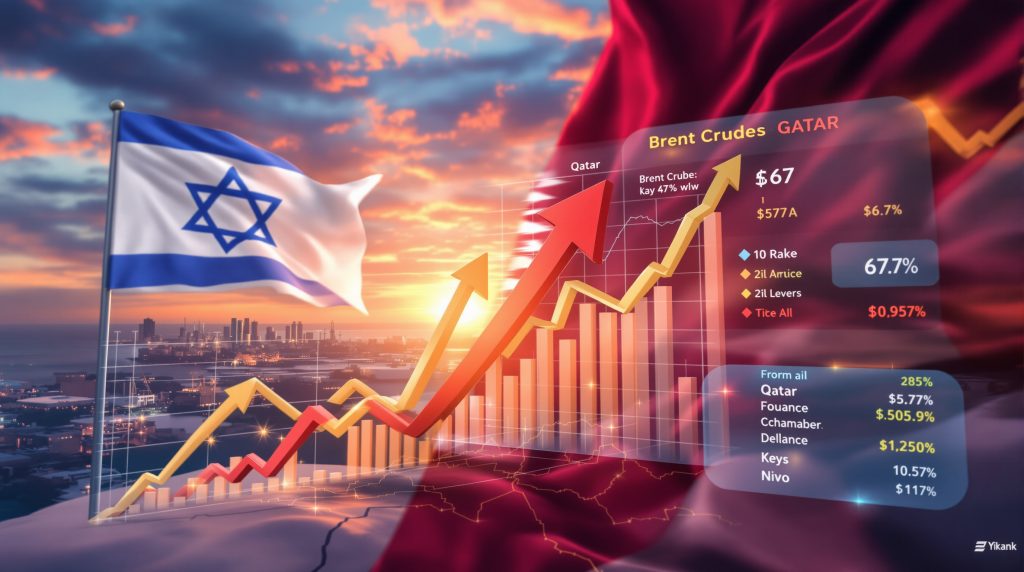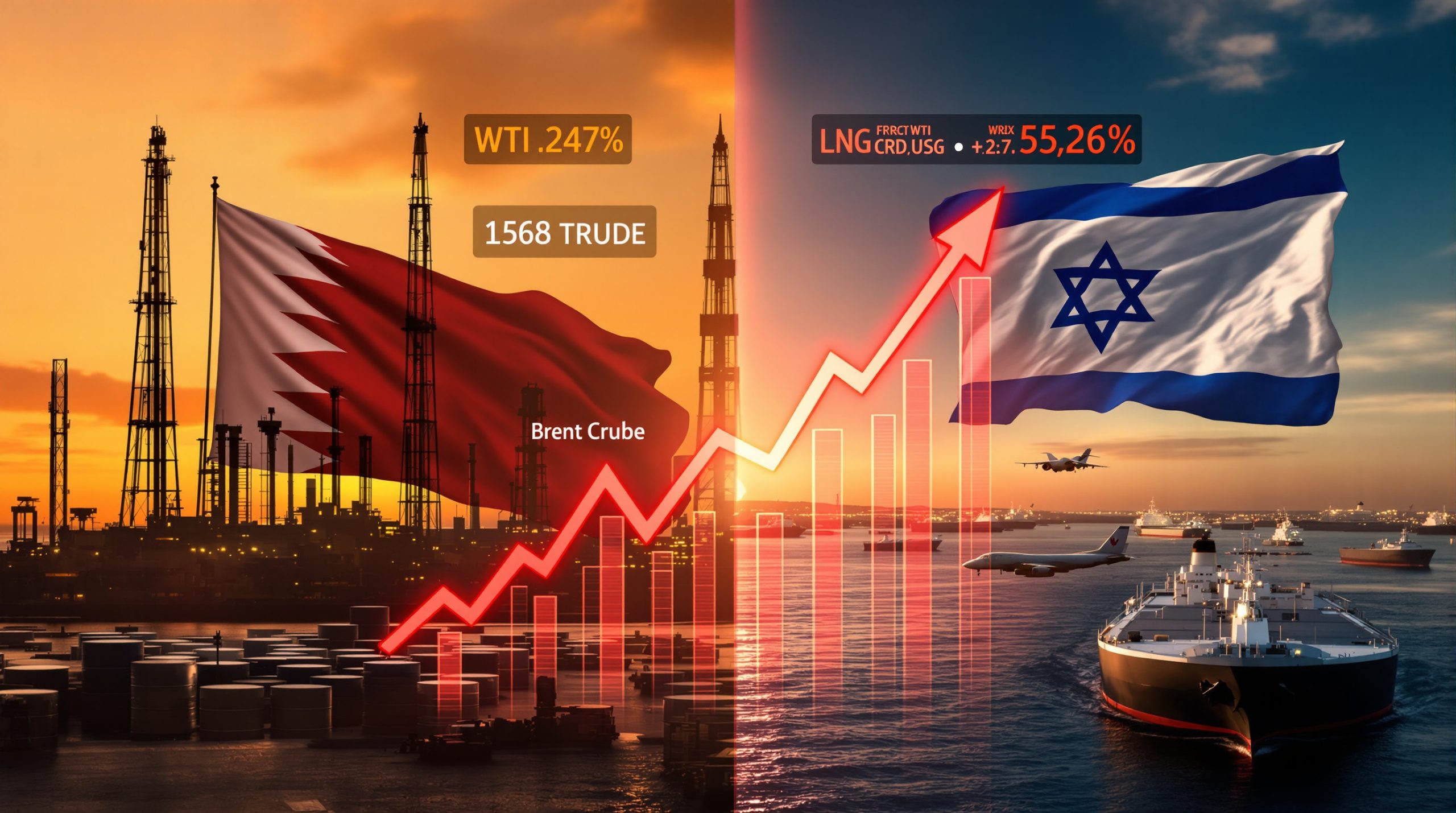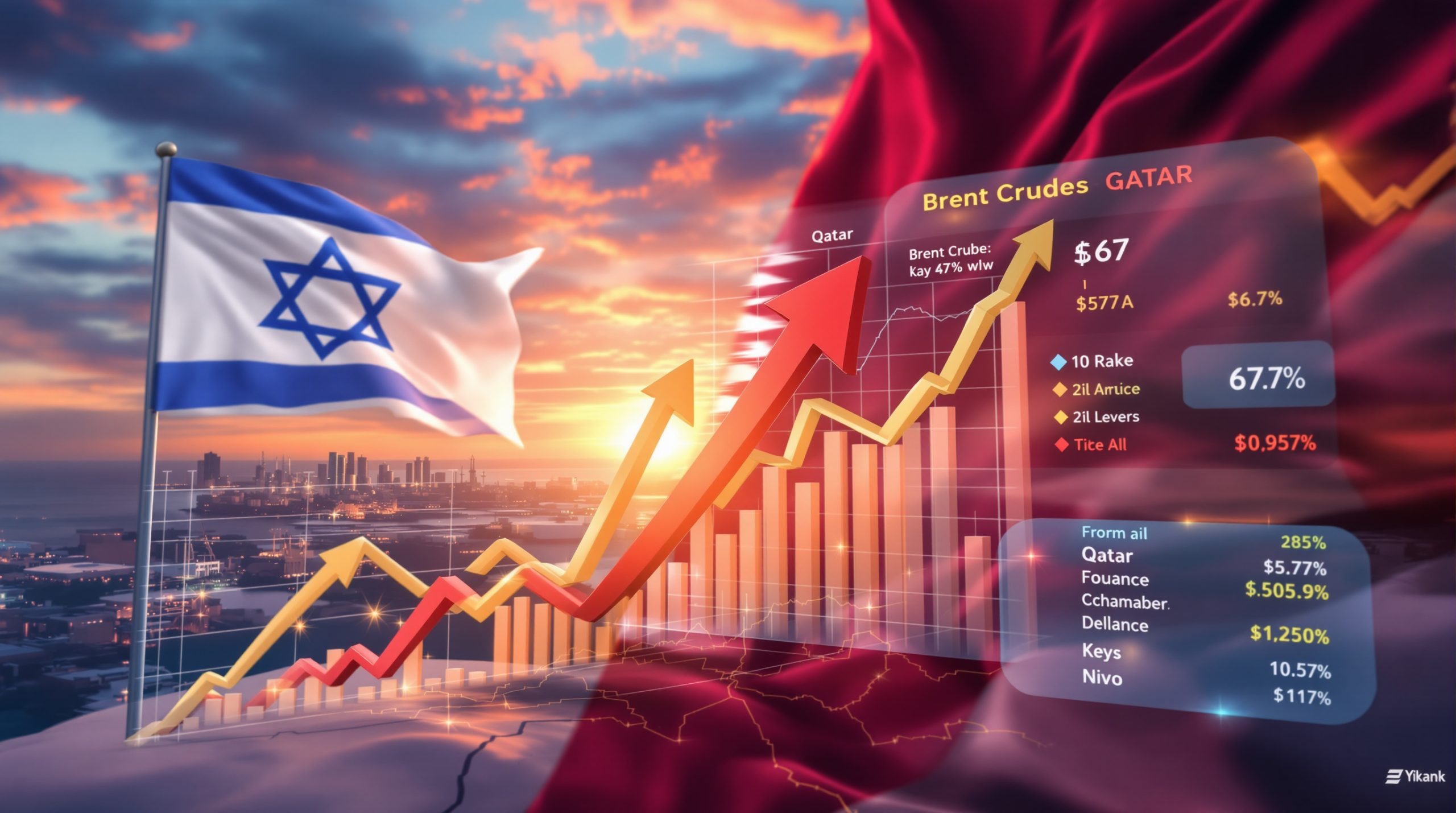Israeli Surprise Strike on Qatar Sends Global Markets Into Turmoil
In a dramatic escalation of regional tensions, Israel's unprecedented military strike targeting Hamas leadership in Qatar has sent shockwaves through global markets. The operation, which Israeli officials have described as a "surgical strike," has triggered immediate concerns about energy security and critical minerals supply chains across the Middle East.
The Israeli surprise strike on Qatar represents a significant escalation beyond the Gaza conflict that has raged for nearly a year. Prime Minister Netanyahu's office confirmed the operation, stating that "Israel takes full responsibility" and describing it as "100% an Israeli operation" aimed at eliminating Hamas leadership figures who had been residing in Doha.
Oil Markets React Sharply to Middle East Escalation
Global oil prices surged over 8% in early trading following news of the Israeli surprise strike on Qatar, with Brent crude jumping above $95 per barrel. The spike reflects immediate market fears about potential disruptions to Qatar's significant natural gas exports and broader regional stability.
Energy analysts note that oil price movements amid trade wars have already created a volatile environment, with this geopolitical shock adding another layer of uncertainty. Qatar's position as the world's second-largest LNG exporter makes any conflict in the region particularly concerning for global energy markets.
"This is precisely the kind of black swan event energy markets have been fearing," said Sarah Emerson, energy security analyst at ESAI Energy. "With global inventories already tight, we could see prices testing $100 if there's any hint of supply disruption from Qatar or retaliatory actions affecting other producers."
The strike has also highlighted the fragility of OPEC oil market influence as geopolitical tensions increasingly drive price volatility beyond the cartel's control mechanisms.
Global Financial Markets Tumble Amid Uncertainty
Stock markets worldwide registered sharp declines as investors fled to safe-haven assets. The unprecedented nature of the strike—targeting Hamas officials on Qatari soil—has raised fears of a broader regional conflict that could potentially draw in other powers.
Key market movements include:
- S&P 500: Down 3.2% in early trading
- European markets: FTSE 100 dropped 2.8%, DAX down 3.5%
- Asian markets: Nikkei plunged 4.1%, with similar declines across regional exchanges
- Gold: Surged above $2,600 per ounce
- Government bonds: Treasury yields fell as investors sought safety
Market analysts pointed to several compounding factors intensifying the market reaction, including the US-China trade war impact that had already created heightened tension in global markets.
Qatar's Strategic Importance in Global Energy
Qatar's position as an energy superpower magnifies the potential economic repercussions of this crisis. The small Gulf state produces approximately 77 million tonnes of liquefied natural gas annually, accounting for roughly 20% of global LNG supply.
Any disruption to Qatari gas exports would have severe implications for energy importers, particularly in Asia and Europe. Japan, South Korea, and increasingly European nations rely heavily on Qatari LNG, especially since the reduction in Russian pipeline gas supplies to Europe.
According to reports from the scene, explosions were heard in Doha's diplomatic district, though Qatari authorities have yet to release a comprehensive statement about damage to critical infrastructure.
Economic Implications Beyond Energy Markets
The economic fallout extends well beyond immediate energy price shocks. Tourism, aviation, and Qatar's substantial foreign investments are all facing uncertainty. Qatar's sovereign wealth fund, with assets exceeding $450 billion, has significant stakes in companies ranging from Volkswagen to Barclays Bank.
The US economy and tariffs situation has created additional vulnerability to shocks like this, with limited policy space to absorb new inflationary pressures from energy price spikes.
Financial analysts note that Qatar's banking sector, which has extensive international connections, could face pressure if the conflict escalates or sanctions emerge. This interconnectedness means the economic impact could spread rapidly through global financial systems.
Diplomatic Fallout and International Response
The international community has responded with alarm to the Israeli operation. The UN Security Council has called an emergency session, while the US State Department issued a statement urging "all parties to exercise maximum restraint."
"This action represents a dangerous escalation that threatens regional stability," said UN Secretary-General in a statement. "We call for immediate de-escalation and respect for Qatar's sovereignty."
Qatar has played a crucial role as mediator in various regional conflicts, including hosting Hamas political leadership with international knowledge and approval. This strike now puts that diplomatic role in jeopardy and raises questions about the future of peace negotiations in the region.
According to Israeli government statements, the operation targeted specific Hamas leaders involved in planning the October 2023 attacks, though Qatar has historically maintained that Hamas's presence was part of internationally-supported diplomatic efforts.
Market Outlook and Potential Scenarios
Analysts are presenting several potential scenarios for market developments:
- Short-term volatility: Markets typically overreact initially before assessing actual impact
- Prolonged risk premium: Energy prices could maintain a "geopolitical premium" of $5-10 per barrel
- Escalation risk: Any retaliation or expansion of conflict could trigger more severe market reactions
- Diplomatic resolution: Swift international intervention could contain fallout
The Israeli surprise strike on Qatar has created a market environment dominated by uncertainty, with investors particularly concerned about potential supply chain disruptions in an already fragile global economy.
Energy security experts suggest that while Qatar's gas infrastructure is well-protected, even perception of risk could drive prices higher and trigger contractual complications with major buyers, particularly as winter approaches in the Northern Hemisphere.
As markets digest this development, the broader implications for regional stability and global energy security remain the primary concerns driving investor sentiment and policy responses across major economies.
Ready to Stay Ahead of the Next Major Market Disruption?
Discover how significant resource announcements can provide early warning signals for major market movements with Discovery Alert's proprietary Discovery IQ model. Explore historic examples of exceptional market outcomes following critical discoveries by visiting our dedicated discoveries page.




